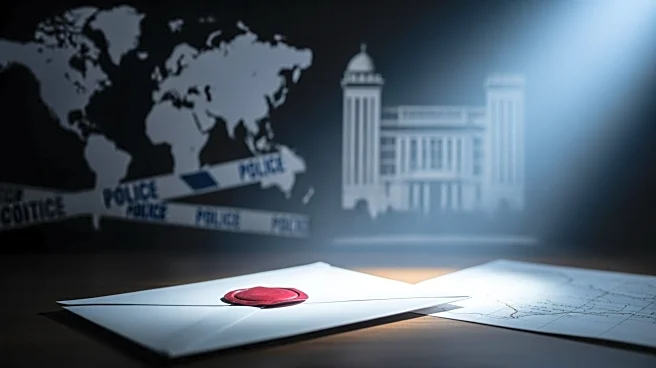What's Happening?
The U.S. government has imposed visa restrictions on Fritz Alphonse Jean, a member of Haiti's transitional presidential council, accusing him of supporting gangs and obstructing efforts to combat criminal
organizations. This move is expected to exacerbate Haiti's political instability, as gangs control significant portions of the capital and central regions, engaging in extortion and violence. Jean, who confirmed the sanctions, rejected the accusations and stated that the council is committed to fighting corruption and gang influence. Haiti is scheduled to hold elections by February 7, but ongoing violence has made meeting this deadline challenging. The situation is further complicated by threats of sanctions from U.S. and Canadian representatives if the council does not desist from changing the head of government.
Why It's Important?
The U.S. sanctions against Fritz Alphonse Jean highlight the international community's concern over Haiti's political and security situation. With gangs controlling large areas and impacting daily life, the stability of Haiti is crucial for regional security. The sanctions could influence Haiti's political landscape, potentially affecting the upcoming elections and the transitional council's ability to govern effectively. The move also underscores the U.S.'s stance on combating corruption and criminal activities in Haiti, which could lead to increased international pressure on Haitian leaders to address these issues. The ongoing violence and instability have broader implications for humanitarian efforts and economic development in the region.
What's Next?
Haiti faces significant challenges in organizing elections amid gang violence and political instability. The transitional council must navigate international pressure and internal threats to establish a stable government. The U.N.-backed mission led by Kenyan police continues to struggle with containing violence, and Haiti awaits a new gang-suppression force with arrest powers. The suspension of flights by Sunrise Airways due to safety concerns further isolates the country, complicating efforts to restore normalcy. The Provisional Electoral Council has tentatively set election dates for next year, but achieving these goals will require substantial improvements in security and political cooperation.








